Mighty Drinks has joined the unenviable ranks of plant-based brands going to the wall having raised a bucket-load of cash and racked up big losses. A well-worn story by this point.
However, scratch under the surface a little and there is much more to the Mighty story than failure.
Having run out of money, and options for securing more, the business was forced to call in administrators yesterday, as revealed by The Grocer. Specialists at recovery firm Interpath are now in charge and are exploring whether a rescue deal can be struck, although this seems unlikely given all the obvious players will already have been given a chance to step in before the formal appointment.
Tom and Nick Watkins, who launched Mighty Pea in 2019, are well-respected and well-liked by investors, supermarkets, fellow founders and folks in the City.
The pair from Yorkshire deserve credit for getting pea milk on the shelves of major retailers across the country (and bagging a spot on the Tesco incubator scheme back in 2021), giving a new spin to the burgeoning alternative dairy drinks category.
They didn’t go down the obvious route of banging the animal cruelty drum about cows being raped and the horrors of Big Dairy, but rather went for a quirkier take on the space, with the origin story talking about making pea milk in a bathtub in Yorkshire “Breaking Bad style”.
“We didn’t start Mighty so you’d pick up a placard, join PETA and destroy the dairy industrial complex,” says the brand’s website pitch. “We did it so you could make a small, planet-friendly change to how you shop ‘dairy’ and leave you feeling good about what you’ve bought.”
Standing out in a plant-based crowd
Opting for an alternative milk made from yellow split peas looked to be a sensible option to differentiate in a crowded category, enabling the brand to highlight the product as a lower sugar and higher protein alternative to oat milk, as well as being better for the environment than SKUs made using almonds.
It was allergen friendly as well, being free from soy, nuts and gluten, making it perfect for families. In fact, Mighty was gearing up to launch a new kids range in retailers, which may have sparked the growth needed to get to a sustainable scale. All the signs suggested this was a business built to be a winner.
But despite the many successes, it’s hard to look at the cold financial numbers on the balance sheet and not feel like this outcome had an air of inevitability about it.
A growth brand riding the wave of a category on a seemingly unstoppable rise, racing from equity raise to equity raise to keep the momentum going. But when the category turned sour, with inflationary pressure ratcheting up and shoppers tightening purse strings, it became almost impossible to stay on the merry-go-round.
A few high-profile failures meant investors became overly category cautious and the funding tap got turned off. A brutal reality of building a challenger brand.
Mighty managed to register total losses of more than £12m from launch until the end of 2023, with that figure certainly having widened further in 2024 and early 2025. It raised in excess of £8m from institutional investors, crowd backers and the government (in the shape of the Covid lifeboat scheme Future Fund). But sales, despite the good distribution spread, remained fairly small, in the low single-digit millions, which left the company constantly chasing its own tail.
Mighty misses the boat
It’s always sad to see challenger brands going under, but what must be particularly galling for the brothers behind Mighty is they reached the end of the road just when the category is bouncing back from its downturn.
Oat milk is driving the resurgence as demand from café-dwellers for alternative chai lattes and mochas continues to be on the up and sales in supermarkets also rise, benefiting category leader Oatly.
The likes of Plenish and Rude Health are also winning, despite a premium price point, thanks to the trend towards clean ingredient decks.
Mighty had already diversified into oats with protein powders as well as a milk format, with the brand’s barista oat milk understood to be its best-selling line. And it was also clean label, but unlike Plenish and Rude Health, who are both owned by much bigger groups, Mighty did not have the resources to benefit from the upswing.
Rude Health CCO Tim Smith told The Grocer: “Rude Health and Oddlygood both know first-hand the passion, dedication and resilience it takes to build a plant-based drinks brand, so our thoughts are with everyone affected by Mighty’s situation.”
Smith adds the administration is a reminder of the real challenges still facing the category, but he still sees huge potential for growth. “Now more than ever, it’s important for brands, retailers and consumers to come together to champion innovation, transparency and choice. By joining forces, we can help the plant-based drinks sector thrive and reach even more people.”
It looks to be too late for Mighty, but the company’s collapse certainly doesn’t mean the plant-based dairy drinks space is on its knees.







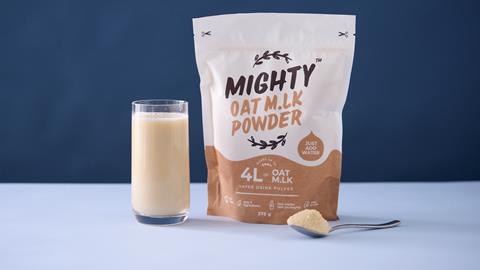
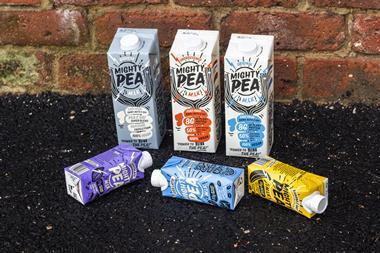
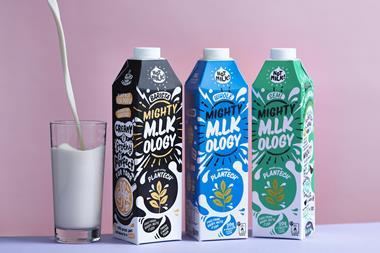
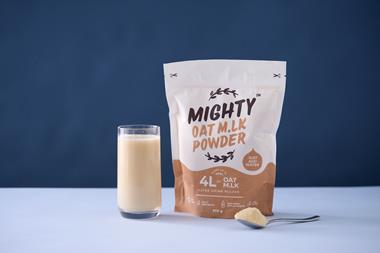
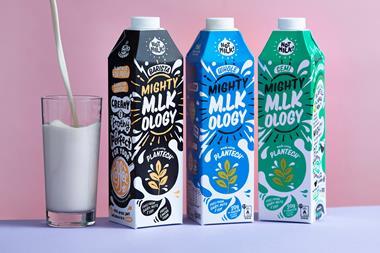
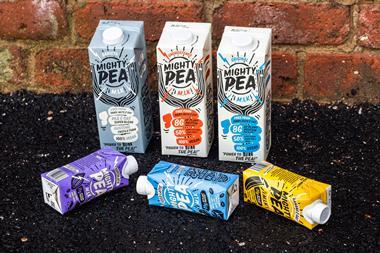







No comments yet